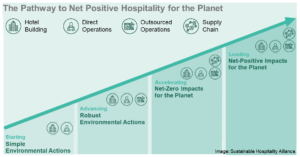 Collaboration across the value chain enables hospitality to be a powerful force for improvement, with a tangible positive impact on the environment. The Pathway has been created by the industry for the industry, in consultation with numerous stakeholders across the value chain. It offers simple and practical solutions that can be replicated by any organization and every hotel – from those just getting started to those who are leading the way in sustainable innovation in hospitality. The Pathway looks beyond having zero impact and recognizes the immense potential hospitality has in making a lasting positive impact on the planet.
Collaboration across the value chain enables hospitality to be a powerful force for improvement, with a tangible positive impact on the environment. The Pathway has been created by the industry for the industry, in consultation with numerous stakeholders across the value chain. It offers simple and practical solutions that can be replicated by any organization and every hotel – from those just getting started to those who are leading the way in sustainable innovation in hospitality. The Pathway looks beyond having zero impact and recognizes the immense potential hospitality has in making a lasting positive impact on the planet.
Sustainable Hospitality Alliance. "Pathway to Net Positive Hospitality for the Planet.". March 2022. https://sustainablehospitalityalliance.org/...
Posted on 02/06/22
Recent Abstracts
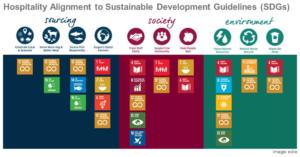
High Performance Hospitality
The cases describe the environmental, social and financial advantages and applications of hotel design, construction, and operations to assist in expanding a high-performance development resources network. They are grouped by category – mid-rate, conference center, and luxury – and cover the resource for the project d ...
Posted on 02/02/22
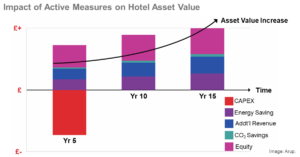
Exploring Green Hotel Competitive Strategies by Using the Hybrid Method for Complex Data Analysis
Green hotels emphasize safety, health, and environmental friendliness. They promote green operations, green consumption, environmental protection, and the reasonable consumption of resources in operations. This study explored the criteria and competitive strategies of green hotels in the development of criteria syste ...
Posted on 31/01/22
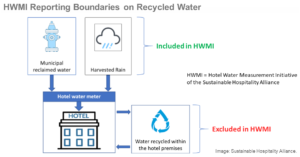
Sustainable Hospitality Alliance
The Sustainable Hospitality Alliance drives collaborative action. It is an alliance of senior executives from hospitality companies and industry partners who collaborate and cooperate on joint areas of action. The alliance develops open resources and programs to enable the wider industry to grow sustainably and opera ...
Posted on 29/01/22
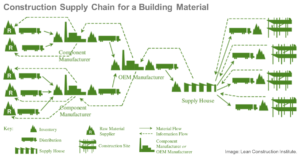
Defining Supply Chain Visibility for Industrial Construction Projects
Visibility is needed in the construction supply chain for sustainable procurement and decision-making. Supply chain visibility (SCV) is essential for on-time delivery and installation of materials and results in more effective supply chain management and improved project ESG performance. For effective communication w ...
Posted on 27/01/22

Together, Let’s Help Restore Our Earth
Accor advocates sustainable development and hospitality that respects the environment and communities in which the group operates. Chiefly through its “Planet 21” program built around employees, customers, partners, communities, food, and buildings, it limits its negative social and environmental impacts. Accor's “Pl ...
Posted on 20/01/22

Ecolabeled Travel Offerings
Tourism 2030 DestiNet Services reports that there are over 200 certification programs on sustainable tourism – certificates operating worldwide, certificates in Europe (in two or more European countries), and national certificates. The Austrian ecolabel for "Green Meetings and Green Events" is said to be the first gree ...
Posted on 19/01/22
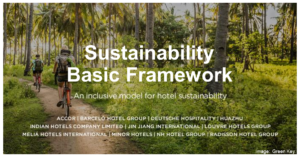
Top Players in the Hotel Industry Build Inclusive Sustainability Framework Accessible for All Hotels
Green Key is launching an initiative to drive responsible travel and tourism. Under a common framework and definition of "hotel sustainability", it aims to raise the basic level of sustainability in hospitality for all travelers and stakeholders and guide the industry towards sustainable change. In consultation with i ...
Posted on 19/01/22
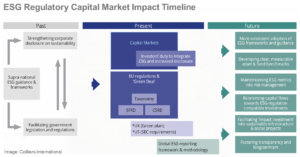
ESG: At a Tipping Point
The regulation of environmental, social and governance (ESG) factors in investment and corporate decision-making in capital markets has reached a tipping point. The new regulations create a standard for ESG reporting to facilitate sustainable investments. However, the drive to advance ESG-compliant investing is also ...
Posted on 17/01/22

Technical Guidance for Calculating Scope 3 Emissions
GHG Protocol Scope 1 includes emissions from the combustion of fuels by sources owned or controlled by the reporting company. Scope 2 comprises emissions from combusted fuels to generate electricity, steam, heating and cooling purchased and consumed by a company. Scope 3 encompasses all other indirect emissions in a ...
Posted on 16/01/22
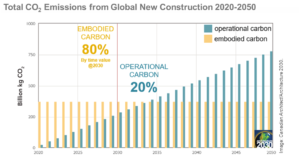
Growth in Floor Area: The Blind Spot in Cutting Carbon
The construction sector has focused mainly on improving its energy efficiency and the substitution of fossil fuels to decarbonize buildings. It has largely ignored the threat from the continued growth in the built environment. This article argues that embodied carbon in buildings can be reduced only at the strategic ...
Posted on 15/01/22
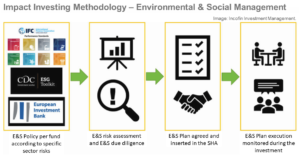
ESG Toolkit for Fund Managers
Environmental and social (E&S) risks are the potential negative consequences to a business that result from its (perceived) impacts on the natural environment or communities. Failure to effectively manage E&S issues in a business can lead to a range of financial, legal and reputational consequences for the com ...
Posted on 13/01/22
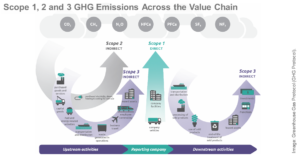
Net Zero Methodology for Hotels
This guide provides a methodology to support the hospitality industry in making net-zero commitments and taking action to achieve them. It sets out an adaptable approach for hotel companies of any size and sets a baseline from which hotels can pursue a net-zero target. The guide helps hotels to understand how emissio ...
Posted on 13/01/22
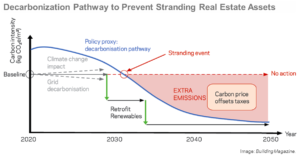
Are Stranded Assets an Unexploded Bomb?
Buildings that are too uneconomical to retrofit to comply with legislation, such as the EU Energy Efficiency Directive (EED) and National Energy and Climate Plans, become stranded assets. They are a significant risk for investors and property owners that have not ensured that their real estate assets are future-proofe ...
Posted on 10/01/22
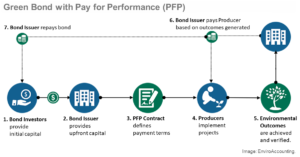
Green Loan Principles
Green loan principles (GLP) are a high-level framework of market standards and guidelines to promote the development and integrity of the green loan product. They define green loans as any debt instrument, including bonds, made available exclusively to finance or re-finance, in whole or in part, new and/or existing el ...
Posted on 10/01/22
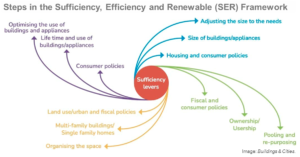
Sufficiency Should Be First
Unless "sufficiency" becomes a primary principle in climate mitigation and policies for the development and use of buildings, it is unlikely that global warming will be reduced. This article explains that we cannot meet the Paris Agreement targets of 1.5°C above pre-industrial levels without building efficiency improv ...
Posted on 08/01/22

